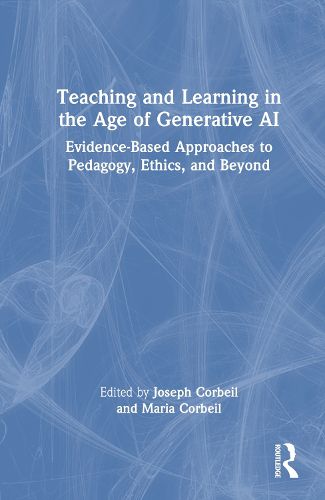Readings Newsletter
Become a Readings Member to make your shopping experience even easier.
Sign in or sign up for free!
You’re not far away from qualifying for FREE standard shipping within Australia
You’ve qualified for FREE standard shipping within Australia
The cart is loading…






Teaching and Learning in the Age of Generative AI explores how educators can effectively harness the potential of artificial intelligence technologies while skillfully navigating its pedagogical, technical, ethical, institutional, and societal implications. The increasing accessibility of AI technologies among K-12 and higher education students has raised extensive concerns around academic integrity, though a deeper lineage of research and development suggests that these tools may be used to supplement instruction, prioritize critical thinking, and promote digital literacy. Bookended by in-depth analyses of the historical and future trajectories of artificial intelligence in education, this comprehensive resource provides evidence-based strategies for classroom implementation and helpful summaries of common benefits and risks. Teaching assistance, personalized learning, redefined assessments, anti-bias measures, and safeguards against misconduct and privacy infringement are among the wealth of topics addressed in these chapters. This book is an ideal text for undergraduate and graduate students of teacher education and curriculum and instruction as well as for higher education teaching faculty, school technology coordinators, and talent development personnel in training and in service.
$9.00 standard shipping within Australia
FREE standard shipping within Australia for orders over $100.00
Express & International shipping calculated at checkout
Teaching and Learning in the Age of Generative AI explores how educators can effectively harness the potential of artificial intelligence technologies while skillfully navigating its pedagogical, technical, ethical, institutional, and societal implications. The increasing accessibility of AI technologies among K-12 and higher education students has raised extensive concerns around academic integrity, though a deeper lineage of research and development suggests that these tools may be used to supplement instruction, prioritize critical thinking, and promote digital literacy. Bookended by in-depth analyses of the historical and future trajectories of artificial intelligence in education, this comprehensive resource provides evidence-based strategies for classroom implementation and helpful summaries of common benefits and risks. Teaching assistance, personalized learning, redefined assessments, anti-bias measures, and safeguards against misconduct and privacy infringement are among the wealth of topics addressed in these chapters. This book is an ideal text for undergraduate and graduate students of teacher education and curriculum and instruction as well as for higher education teaching faculty, school technology coordinators, and talent development personnel in training and in service.